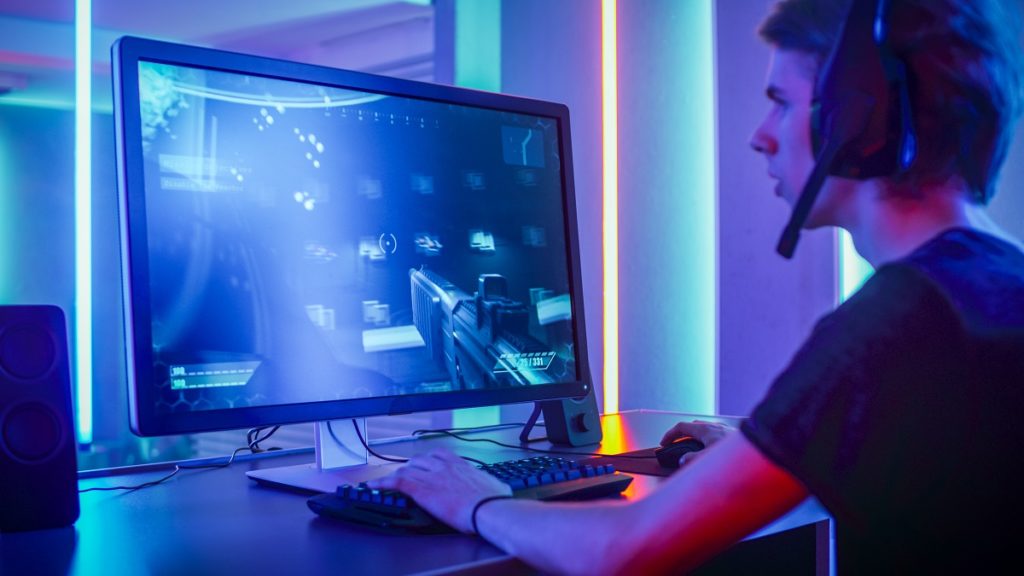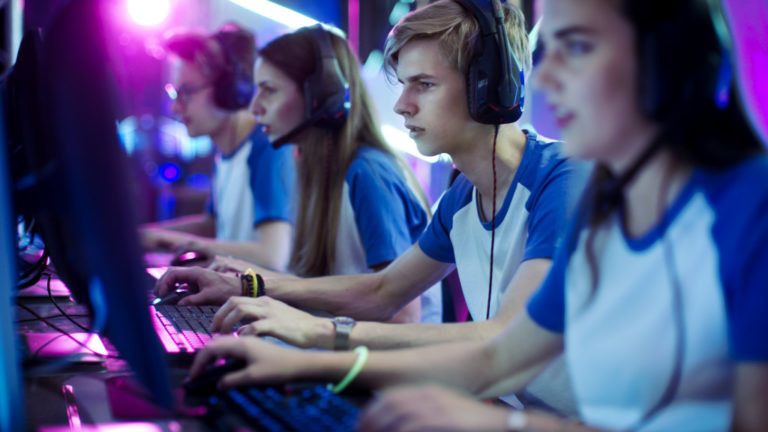Esports gaming, or just plain ‘gaming’ in general, has been on the rise for the past decade. Starting from its roots in competitive arcade games, it has now evolved into something else entirely. While the core characteristics are the same, gaming involves many more complex mechanics now more than ever. You need not go to the arcade anymore to access any of the games you want to play.
From the safety of your home, you can play in communication with a player from the opposite side of the world. Thanks to the internet and the increasing efficiency of technology every year, games upgrade and integrate more and more people. Even mobile games nowadays have their own e-sports event.
As more and more people are gaining access to the world of gaming, people are starting to realize the insane amount of potential entertainment gaming could bring. Children nowadays are more exposed to this type of entertainment more than before. The market has become so big that it is predicted to reach revenues of as much as 1.6 billion dollars. The hype over e-sports is boosted further by the 2020 COVID-19 pandemic.
Since people cannot go outside, interact with other people physically, and play sports, people started looking at gaming as an alternative entertainment portal. Compared to previous generations that venerated other sports such as football, basketball, golf, and football, children and teenagers are big fans of various e-sports games. Some are even aspiring to become e-sports figures themselves.
However, we must ask, is pursuing gaming possible? Is pursuing gaming sustainable?
History of Esports Athletes
Esports had its humble beginnings in 1972 when a Spacewar Championship was held and participated in by almost 10,000 gaming candidates. It took place in the uncanniest place there is for a gaming event — Stanford University. Esports eventually evolved into online tournaments in the 90s, where Nintendo games and first-person shooters made appearances. However, the real craze of esports began in the 21st century, when the esports prize saw staggering increases in its prizes.
As the viewership of esports tournaments increased, more and more sponsorship deals followed suit. The ten-million U.S. dollar grand prize in esports was held for a game called DOTA 2 — Defense of the Ancients. Every year, thousands and thousands of esports athletes form groups that aspire to enter even the round of 32 teams in the aforementioned tournament.
Sponsorship Deals

A lot of teams in different esports leagues currently have ties to major brands. Similar to different sports like boxing, basketball, and F1 racing, major athletes now don different corporate logos of their sponsors. Even their playing gear is sponsored. Most personal computer peripherals such as their headphones, monitor, keyboard, and mouse are all sponsored by well-known brands. Sponsorship deals are endlessly flowing for successful gamers around the world. They could very well be living off the revenue they get from all these deals.
Age
Like most sports, esports athletes have a ticking time bomb regarding viability in playing their game. Athletes have a time limit to their skill as most of them lose their insane hand-eye coordination slowly by the time they reach their 30s. As the game continues to progress — more and more young athletes who are still in their prime will continue to take over the old-timers. Most newly developed games also have a trend that accompanies the hype — which allows them to exist for only a few years (with only a few timeless exceptions).
Negatives
Unfortunately, esports athletes are a rare breed on their own, and only a percentage of a certain smaller percentage will get to reach the top. There are predicted to be billions of players around the world who are engaged in gaming (mobile or console). According to the latest labor market analysis and labor market analytics software, unemployment is on the rise. It is now imbibed in the culture of children that esports gaming could be a legitimate career.
There are even universities offering scholarships and courses surrounding gaming. However, similar to any other sport, only a fraction of a small number of people will ever make it to the top. Gaming is a career on its own that is unsustainable. It does not allow growth upon failure. You have to be either naturally gifted or insanely skilled to maintain your status at the top.
There are also some reports of mental illnesses developing from pure gaming habits alone. Some even forget how to interact normally after hours and hours of gaming every day. Like any other type of addiction, gaming can also eat up one’s life when one allows it to.

















